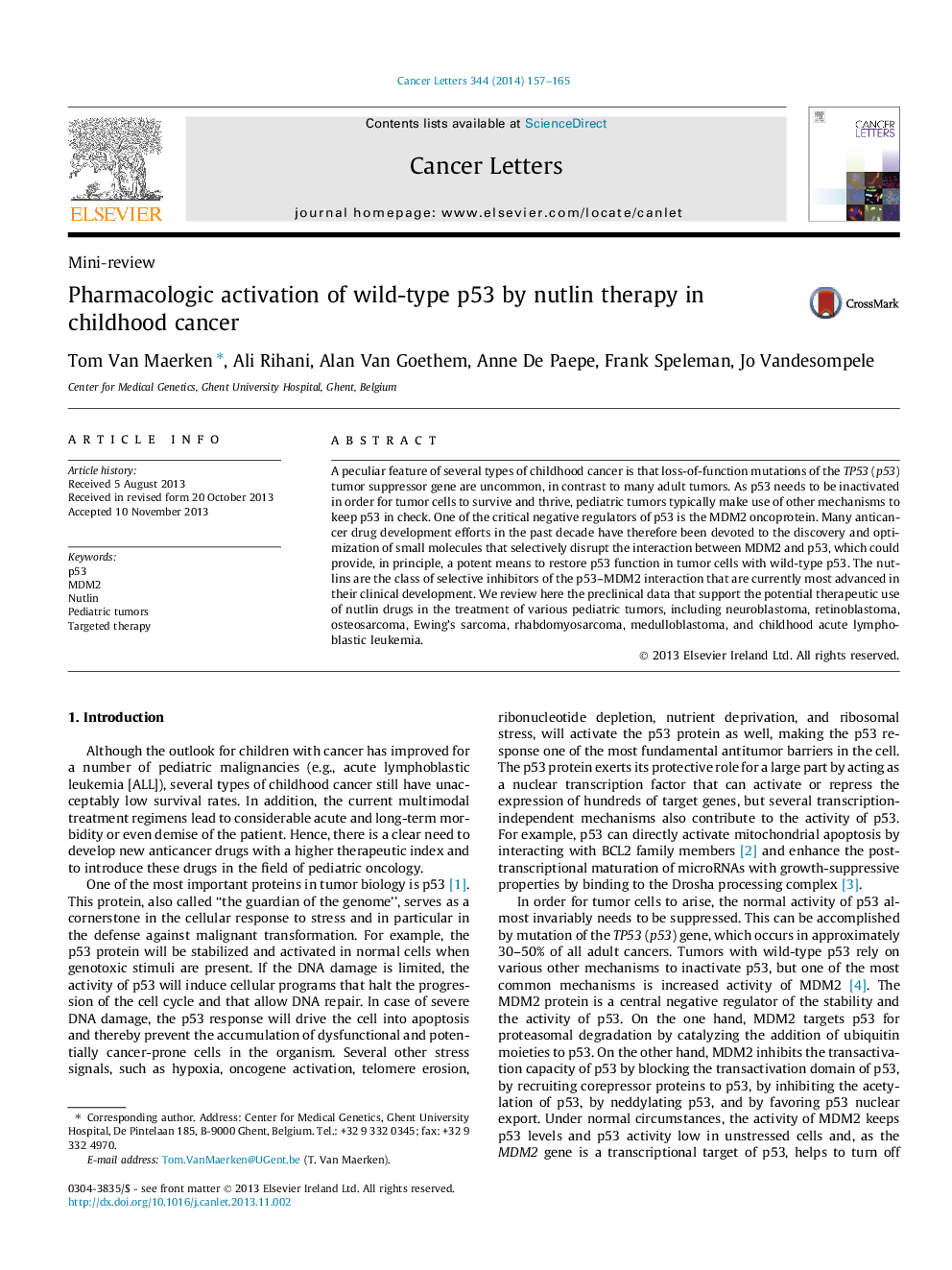| Article ID | Journal | Published Year | Pages | File Type |
|---|---|---|---|---|
| 2112685 | Cancer Letters | 2014 | 9 Pages |
A peculiar feature of several types of childhood cancer is that loss-of-function mutations of the TP53 (p53) tumor suppressor gene are uncommon, in contrast to many adult tumors. As p53 needs to be inactivated in order for tumor cells to survive and thrive, pediatric tumors typically make use of other mechanisms to keep p53 in check. One of the critical negative regulators of p53 is the MDM2 oncoprotein. Many anticancer drug development efforts in the past decade have therefore been devoted to the discovery and optimization of small molecules that selectively disrupt the interaction between MDM2 and p53, which could provide, in principle, a potent means to restore p53 function in tumor cells with wild-type p53. The nutlins are the class of selective inhibitors of the p53–MDM2 interaction that are currently most advanced in their clinical development. We review here the preclinical data that support the potential therapeutic use of nutlin drugs in the treatment of various pediatric tumors, including neuroblastoma, retinoblastoma, osteosarcoma, Ewing’s sarcoma, rhabdomyosarcoma, medulloblastoma, and childhood acute lymphoblastic leukemia.
